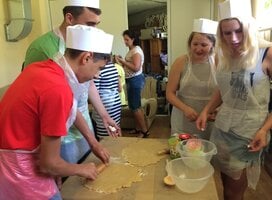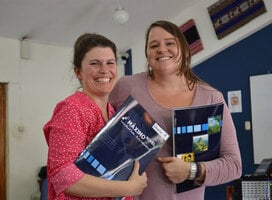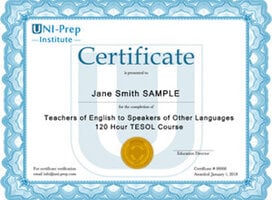Teach English in Bulgaria
Located in Southeastern Europe, Bulgaria is known for its coffee, black sand beaches, and picturesque mountain ranges. However, the country is facing a demographic crisis, as birth rates are rapidly decreasing, and many young people relocate abroad. As a result, many Bulgarian businesses are going head-to-head with international companies, in order to retain and create jobs for the younger work force.
Today, full-time English language instruction and classes are in incredibly high demand, so that the Bulgarian market can have a competitive edge in the region. Even so, Bulgaria has some of Europe’s top scores in reading and writing, as it is known to hold high educational standards for its students. ESL teachers will find work in Bulgaria to be rewarding and the country itself to be enchanting and physically stunning.
Foreign Language Schools:
Most teaching jobs in Bulgaria are located in English language schools, like International House Sofia or Lloyd’s Language Center. Some meet after school (for young students) or on nights and weekends (for adult learners).
Private Lessons/Tutoring:
Teachers might want to earn extra money by tutoring. Since employers do not accommodate rent and airfare, teaching English on the side is a great way to earn additional income. Students may range from elementary-aged to adult learners. Although, it is not advised to only tutor; the cost of living in Bulgaria cannot be maintained by just part-time work.
Summer Camps:
If you are looking for short-term work, or are in-between contracts, Bulgarian summer camps typically start in early June and end in late July. Language camps, such as Camp California, are quite popular and consistently hiring ESL teachers.
When and Where to Look for Jobs:
Most jobs are located in Bulgaria’s cities, such as Varna, Sofia, and Plovdiv. Teachers typically work around 20-25 hours per week.
Qualifications:
A bachelor’s degree and TEFL certification are not technically required for applicants, but it is highly advised that you have both. Employers/schools typically hire those with some teaching experience or TEFL/TESOL certification. In addition, most schools or companies conduct both a phone and an in-person interview. Although, make sure to secure an in-person interview before arriving in Bulgaria; if you land a job on the spot, it is difficult to make quick visa arrangements.
Salary & Cost of Living:
Average salary is around $500-1000 USD per month, which matches the monthly cost of living. This is due to the fact that employers in Bulgaria do not accommodate housing and healthcare. However, the general cost of living in Bulgaria is much lower than in other EU countries. Monthly rent for a 1-bedroom apartment, in the city, can cost around $250-300. Also, a dinner for two can cost around 7 euros (not bad!). It is possible to save a little bit, but foreign teachers will find that they break even with costs.
Classroom & Work Culture:
Teachers should dress in conservative, business attire while in the classroom. Also, the grading system is done on a scale of 2-6 points, with 6 being the highest and 2 the lowest. Lastly, note that Bulgarians shake their heads for “yes” and nod for “no.”



















